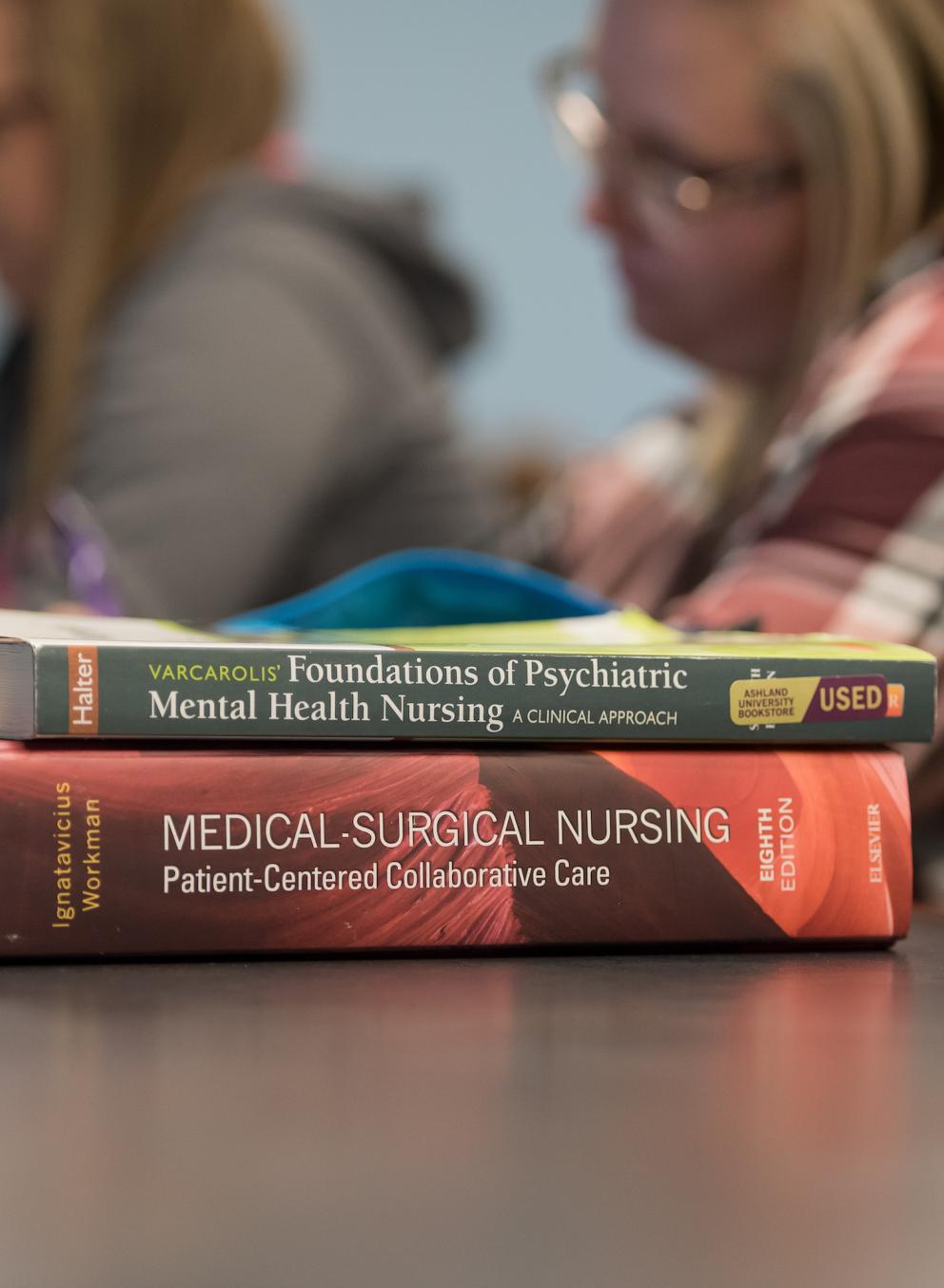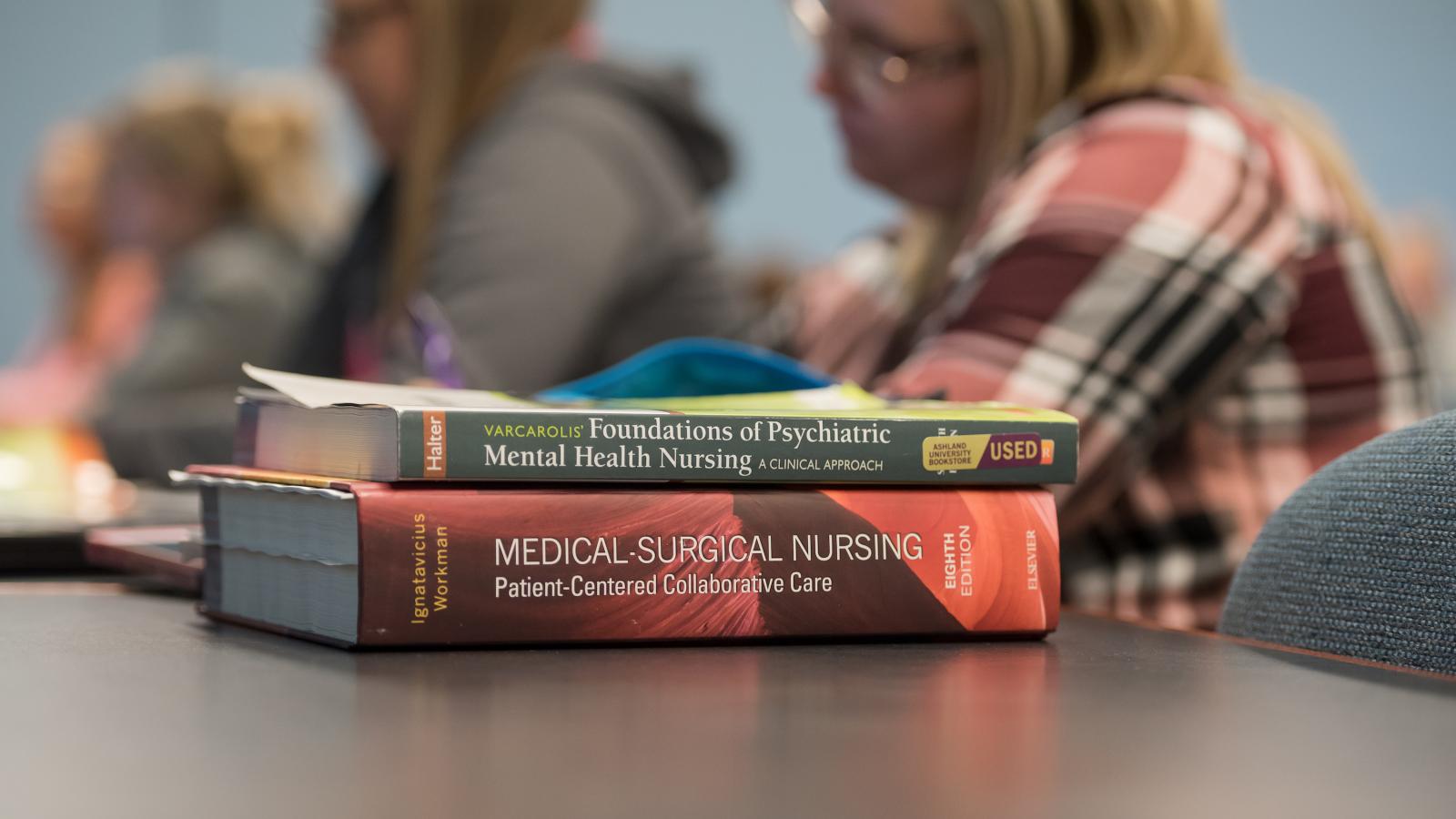Traditional BSN Program Overview
Prepare for Your Nursing Career
The traditional, four-year BSN program at Ashland University prepares you to practice the art and science of professional nursing. It is designed for the student who has completed high school-level education or has transfer credit.
Students complete core coursework in the first two academic years and begin clinical nursing coursework in their junior year.
Nursing majors are introduced to:
- A theoretical knowledge base for nursing.
- Research for evidence-based practice.
- International perspectives in healthcare.
- The nursing process for families and communities.
- The role of nurses as leaders and managers in legal, ethical and political settings.
- The highly technical and clinical skills needed to work with patients and their families.
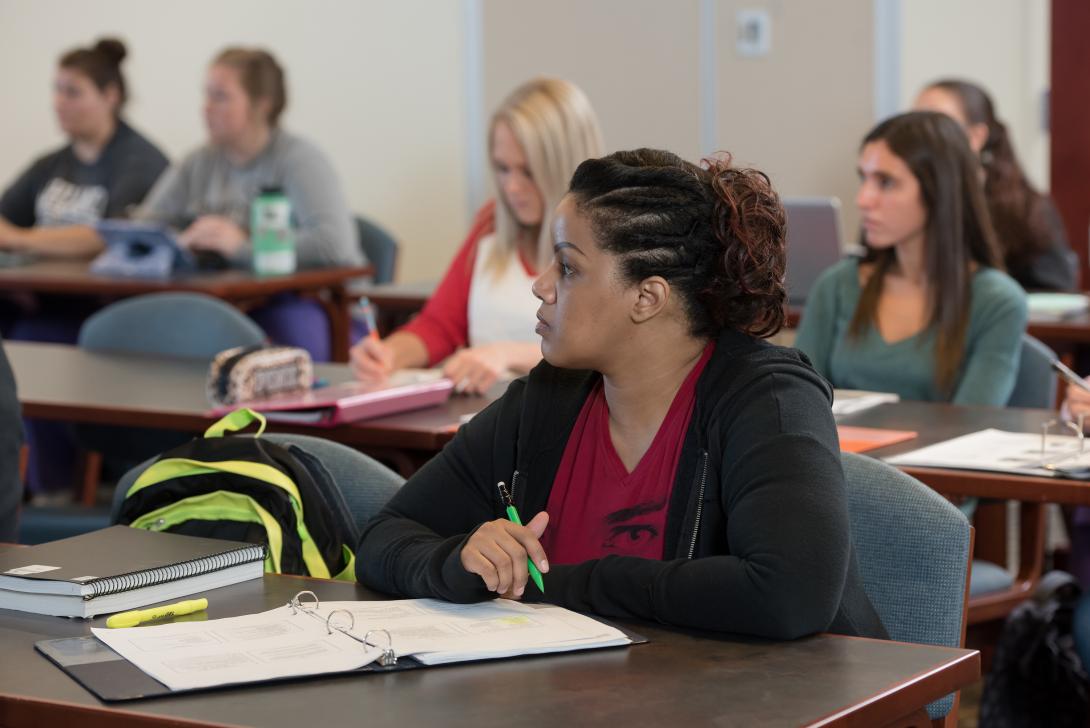
Program Benefits
- Interactive simulations at Ashland University’s state-of-the-art Simulation Center.
- Clinical experience in the surrounding medical community.
- Direct entry program with no further application required for clinical coursework.
- 1:8 clinical instructor-to-student ratio.
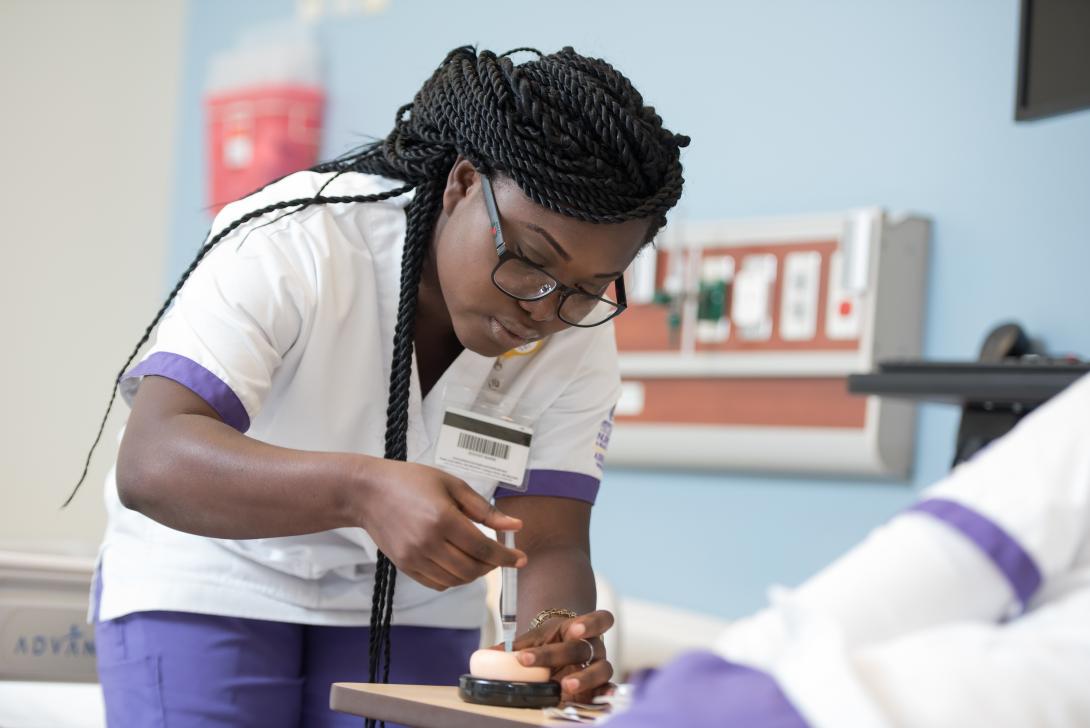
How Do I Know if This Program Is Right for Me?
The traditional four-year program is designed for the student who has completed high school level education. Students in this program complete Ashland University core coursework in the first two academic years and begin clinical nursing coursework in their junior year.

Learning Experiences
Upon completion of the undergraduate nursing program, you will be able to:
- Synthesize knowledge from nursing and a liberal arts education as the basis for clinical judgment, reflective practice and decision making.
- Incorporate professional standards in the practice of nursing.
- Value integrity, caring, accountability, respect and excellence in nursing practice.
- Collaborate with patients and health professionals to develop and implement culturally appropriate health promotion, disease prevention and illness care methods.
- Select current theory and evidenced-based knowledge to guide and teach individuals families and populations regarding health promotion and illness prevention.
- Employ patient care technologies, information systems and communication devices that support safe nursing practice and development of nursing knowledge.
- Demonstrate knowledge of healthcare policy, finance and regulatory environments that impact patient care.
- Incorporate effective communication and collaboration skills, forming partnerships to provide care and to promote positive outcomes to a diverse society in a global context.
- Apply leadership concepts, principles of advocacy and decision making in the provision of quality patient care, healthcare team coordination and accountability for care delivery in a variety of settings.
- Collaborate with healthcare professionals to enhance quality improvement and safety initiatives at individual and system levels of care.
- Investigate health-related social justice concerns within legal, ethical and political contexts.
- Value lifelong learning for personal and professional growth to support excellence in nursing practice.
Sample Curriculum
Learn more about the Traditional Nursing (BSN) curriculum by viewing the Four-Year Curriculum Guide and Academic Catalog
First Year
Second Year
Third Year
Fourth Year
Admission Requirements
Students who meet the admission criteria will be directly admitted to AU and the College of Nursing and Health Sciences for their freshman year.
Transfer Students
Students applying to transfer must file an AU transfer application.
Graduate Outcomes
Ashland’s Traditional BSN program has a National Council Licensure Examination (NCLEX-RN® exam) pass rate of 89% or above in the last five years, scoring higher than the state and national averages in 2021!
- Ashland University BSN: 89.17 percent
- Ohio: 79.07 percent
- National: 86.06 percent
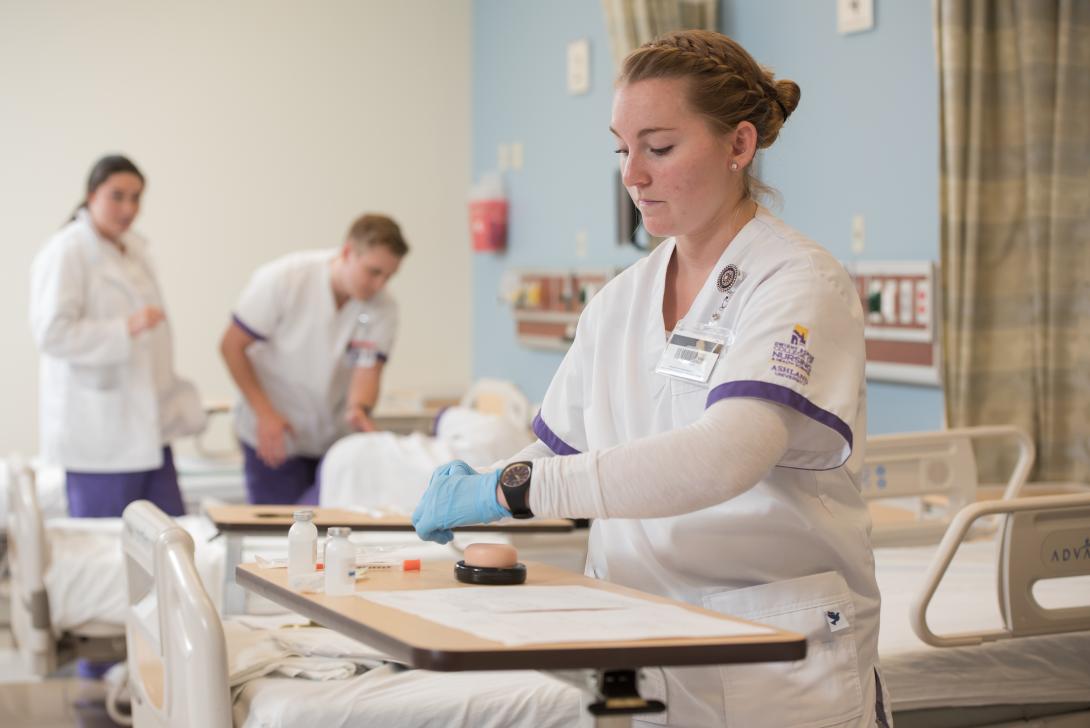
Can You Give Me a Glimpse of My Future?
Your BSN credential will position you for advancement into roles such as nurse manager, clinical coordinator or specialty nurse practitioner, where you can take on leadership responsibilities, contribute to evidence-based practice and positively influence healthcare outcomes. Additionally, having a BSN may lead to increased earning potential and job security, while also providing a strong foundation for pursuing further education at the graduate level if desired.
